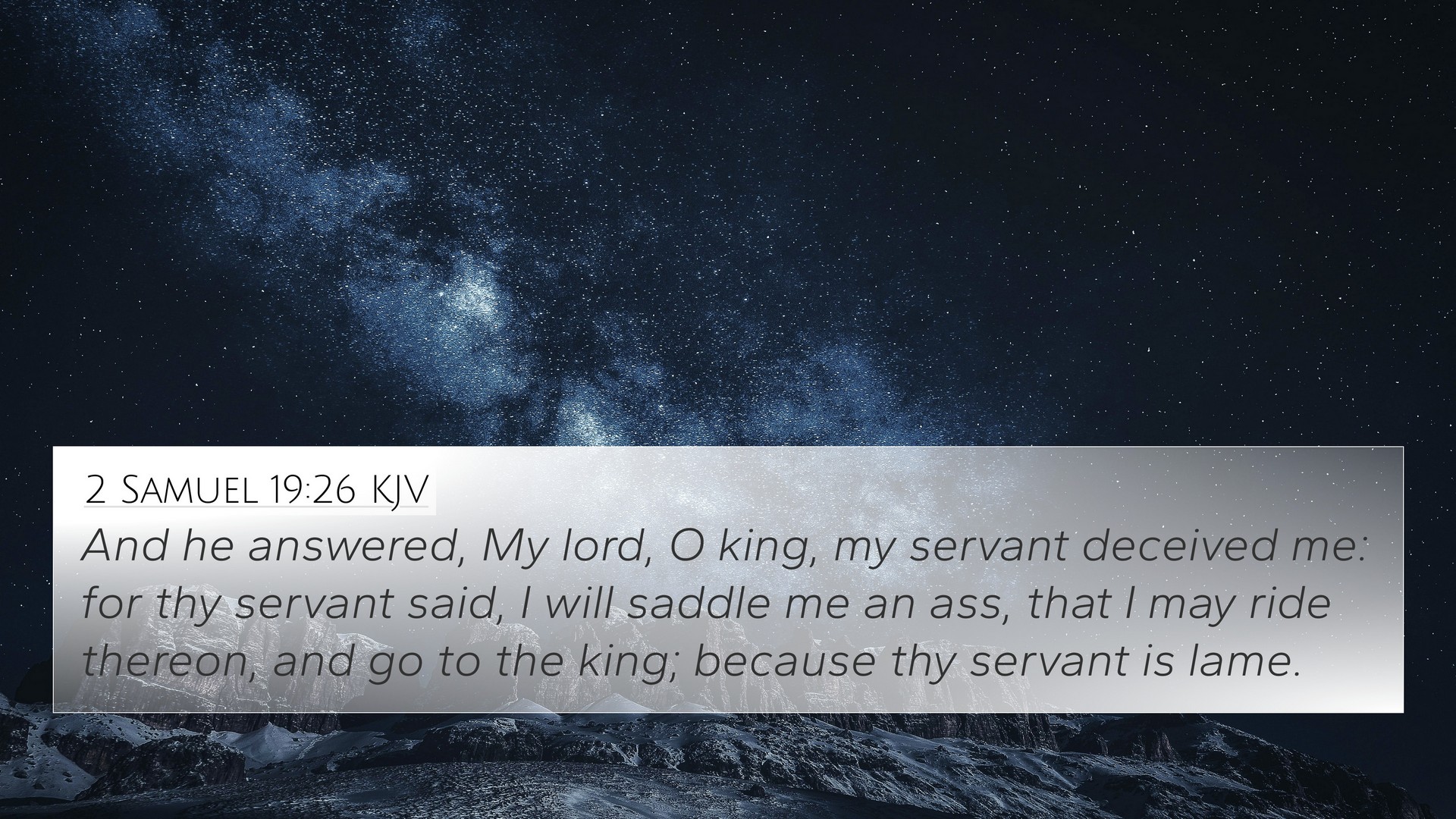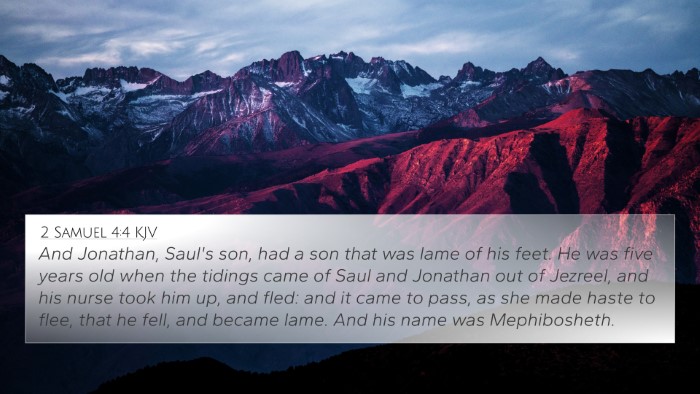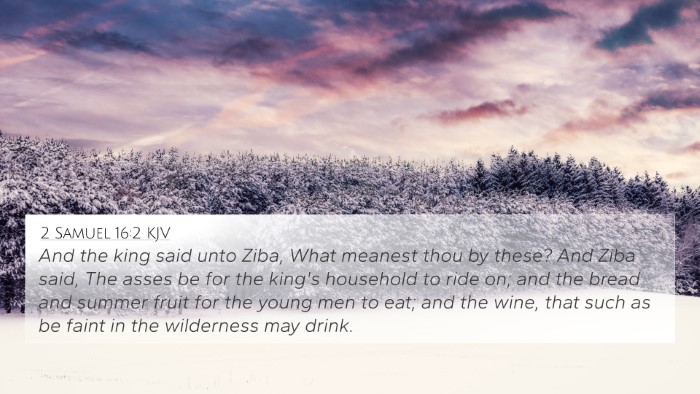Understanding 2 Samuel 19:26
2 Samuel 19:26 reads: "And he answered, My lord, O king, my servant did deceived me; for thy servant said, I will saddle me an ass, that I may ride thereon, and go to the king; because thy servant is lame."
Summary of the Verse
This verse occurs during the narrative of King David's return to Jerusalem after Absalom's rebellion. The context highlights Mephibosheth’s situation, who was crippled and had been loyal to David despite his physical limitations. His response reveals the underlying themes of loyalty, deception, and restoration of relationships.
Thematic Insights
The themes present in this verse can be categorized as follows:
- Loyalty and Betrayal: Mephibosheth feels betrayed by Ziba, yet he remains loyal to David.
- Restoration: This reflects the broader narrative of David's reconciliation with those he had lost during the tumult of Absalom's revolt.
- Physical Limitations: Mephibosheth’s condition highlights that physical ailments do not determine one's loyalty or worth.
Commentary Insights
The commentaries provide a deeper exploration of this verse:
- Matthew Henry: Henry emphasizes the dishonor that Ziba brought upon Mephibosheth, painting Ziba as a cunning deceiver who took advantage of his master’s weakness.
- Albert Barnes: Barnes notes the importance of context, asserting that Mephibosheth's loyalty to David stands in stark contrast to Ziba's treachery. He also examines the implications of status and authority following Absalom’s death.
- Adam Clarke: Clarke offers a detailed analysis of Mephibosheth's plight and the social implications of his condition, asserting the integrity and honor inherent in his plea.
Cross-References to 2 Samuel 19:26
This verse connects to several other scriptures that provide additional context and insight:
- 2 Samuel 9:7: David’s kindness to Mephibosheth, showing the king's prior recognition of him.
- 2 Samuel 16:1-4: Ziba's initial treachery and deception concerning Mephibosheth.
- 1 Samuel 20:14-15: The covenant made between David and Jonathan, establishing loyalty across generations.
- Jeremiah 17:9: The heart's deceitfulness, paralleling the theme of treachery in Mephibosheth’s story.
- Lamentations 3:22: The themes of mercy and faithfulness, which resonate with David's treatment of Mephibosheth.
- Luke 14:13-14: The call to show kindness to the less fortunate, reminiscent of David’s relationship with Mephibosheth.
- Philippians 2:3: A call for humility, echoing Mephibosheth's humble approach to King David.
Exploring Connections Between Bible Verses
The nature of Bible verse cross-references allows for a richer understanding of 2 Samuel 19:26 through:
Identifying connections between Bible verses to draw parallels between the Old and New Testaments, demonstrating themes of betrayal and loyalty.
By utilizing a bible concordance, readers can explore similar situations across scripture, linking David’s narrative with New Testament teachings of integrity and honor.
Tools for Bible Cross-Referencing
Understanding the relationships in scripture can be enhanced using various tools:
- Bible Reference Resources: Utilize the effective Bible cross-reference guide for finding direct connections.
- Cross-reference Bible study methods: Engage in comparative analysis to see the progression of themes across books.
- Comprehensive Bible cross-reference materials: Access in-depth studies that facilitate thorough understanding.
Interpreting Biblical Themes Through Cross-References
Utilizing Bible cross-references for sermon preparation can aid in crafting messages that resonate with biblical fidelity by investigating:
- Thematic Bible verse connections: Revealing cumulative wisdom through the interconnectedness of scripture.
- Detailed cross-reference between Gospels: Understanding how similar events are presented across different accounts can enhance spiritual insights.
Conclusion
2 Samuel 19:26 serves as a poignant reminder of loyalty amidst deception, encouraging believers to reflect on their own relationships and commitments. By exploring this verse through scriptural cross-referencing, one can derive greater wisdom and understanding from the text. This interconnectedness enriches our biblical studies and deepens our comprehension of theological principles.





